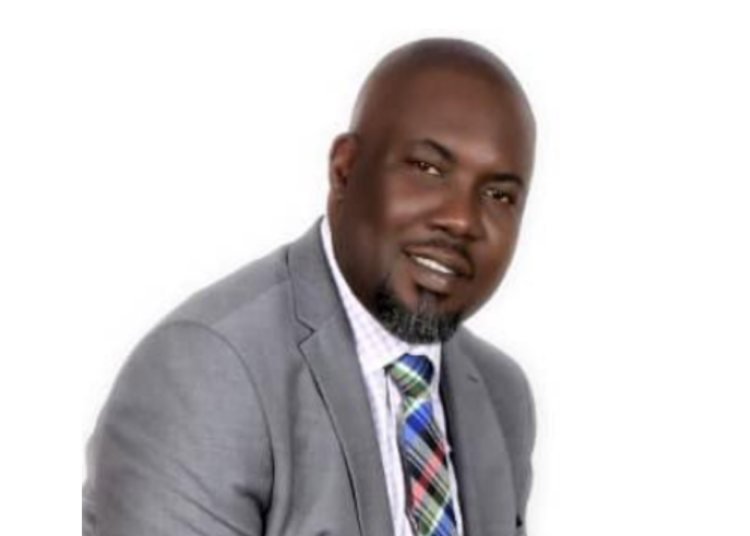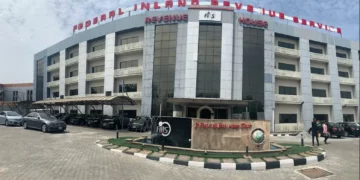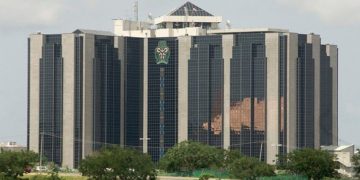The sector has recorded exponential growth, contributing over N20 trillion to the nation’s Gross Domestic Production annually, creating employment and wealth for many people. But that achievement or success is built on a substandard, unregulated and wrong foundation that must be quickly changed to do the right things for good. In many cases, the pillars are simply indicators of disaster waiting to happen.
Quackery is the cankerworm causing havocs; unprofessionalism and the strive for the soul of its potentials are the driving force of those who jump into industry and operate without recourse to regulatory provisions and ethics of the game. While they make brisk wealth from the deficient bricks and harmers in their hands, caution, standard, ethical behaviours are thrown to the wind at the expense of unsuspecting property buyers/renters who often pay to occupy makeshift ruins.
According to the Building Collapse Prevention Guild, a staggering number of above 62 catastrophes of building collapse was recorded in year 2022 alone, causing 84 deaths and injuring 113 persons. Lagos had 20 cases, while Kano and Anambra States recorded five building accidents each, and Delta and Jigawa States four each. Also, 135 cases were reported between 2007 and 2013.
That tragedy seems to have aroused a national interest for proper regulation of the housing and mortgage market. After years of sitting on what is now seen as milestone, the National Assembly passed a Bill to regulate the industry, which was subsequently signed into law by former President Muhammadu Buhari in December 2022. It is christened: Institute of Mortgage Brokers and Lenders (Establishment) Act, 2022.
The Act enables the institute to carry out the responsibilities of training, certifying, and licensing of all industry professionals while ensuring that the competence and conduct of practice of all mortgage professionals and real estate practitioners in Nigeria are of a sufficiently high standard to ensure professionalism in the industry.
The registrar/chief executive officer of the Institute of Mortgage Brokers and Lenders of Nigeria (IMBLN), Dr. Jasper Adeleye shares the same sentiment with the law makers on the need to entrench professionalism in the industry. He recently told me in an exclusive interview that the Nigerian real estate sector is a fragile and very vital part of the economy. However, he admitted that “before the establishment Act, it was without regulations guiding its practice. There is need to coordinate the affairs of the many agencies registered practicing under different conditions and systems.”
Adeleye now heads the institute that provides regulatory framework and capacity building for professionals in the area of mortgage brokerage, estate brokerage, mortgage-backed security, mortgage lending and finance. Like a magician, he is now leading the search for a housing and mortgage sector that is solely operated by certified professionals. How that is possible with his new mandate, only time will tell.
All those who spoke with this correspondent on the Institute of Mortgage Brokers and Lenders Establishment Act, 2022 agree that one thing is not in contention – the need to purge the housing and mortgage market of unscrupulous elements under various guise, including as property managers and estate developers.
In his work for the World Bank, Grimes (1976) observed that housing construction in developing countries could be used as a strategy to absorb slack in investment and employment. In an ideal society, housing sector is seen as an important sector for stimulating economic growth.
Like Dr. Adeleye, Abuja based property manager, Peter Ochai pointed to the untapped potentials of the industry to grow the nation’s economy, a reason he said some guidelines should be put in place and technicalities observed to activate the ability of the industry to grow the economy. “The human and economic benefits are enormous. What we need is proper regulation,” Mr. Ochai said.
In Nigeria, access to affordable housing has largely remained an unfulfilled dream to the vast majority, most especially, the middle and the lower classes of the society.
Apart from paucity of long-term funds and housing finance, poor capacity building and knowledge gap have given rise to quackery in the sector, major challenges that need to be dealt with. Lack of professionalism and regulatory provisions/institutions to effectively guide the operators in the market has indeed evolved as a major problem for Nigeria.
The right to adequate housing that is safe, secure, healthy, available and inexpensive is enshrined in the Habitat Agenda with the goal of providing adequate shelter for all (UN Habitat, 2001).
But is a safe, healthy and affordable housing sector possible in Nigeria? Adeleye says it is very possible if the right things are done. While he agrees that paucity of funds remains a challenge, he said capacity building and knowledge gap are the biggest albatross. He shares the views of other players in the sector who call for professional certification of the operators and strict compliance to regulatory guidelines.
The missing link: mortgage professionals
According to industry watchers, a key missing link in the development of the mortgage industry in Nigeria has been the lack of mortgage professionals who can perform the variety of roles required to enhance affordable, and accessible mortgage finance in Nigeria.
Those who hold such view say to unlock the estimated N59.5trillion housing deficit in Nigeria, millions of mortgage professionals must be trained and equipped with requisite knowledge and skills to perform these roles. Such can only be possible with a full-fledged professional body/institute, says another property developer, Anyim Okeke.
The Institute of Mortgage Brokers and Lenders of Nigeria of Nigeria (IMBLN) Act 2022, strives to support efforts being made by all stakeholder to remedy the situation by training, certifying /registering and regulating the activities of mortgage professionals in addition to promoting professionalism in the sector. Fortunately, this is coming at a time when there is a loud clamour for the diversification of the economy in view of falling oil prices and consequent dwindling of revenue.
In its (2017-2020) Economic Recovery and Growth Plan [ERCG], the federal government proposed the setting-up of a family homes fund (FHF), that is designed to stimulate the construction sector, while improving access to social Housing in line with the government’s economic diversification plan. The main objectives are to overcome critical constraints in the construction and real estate sectors and increase the availability of financing for the construction industry. The strategy is to construct 2,700 housing units in the short-term to create 105,000 direct jobs a year and gradually increase to 10,000 housing units per annum by 2020; construct 20,000 pilot social housing units; and reposition the Federal Mortgage Bank of Nigeria by recapitalising it from N2.5 billion to N500 billion to meet the housing needs across Nigeria.
The Mortgage profession is an important catalyst needed unlock Nigerian housing sector and increase the house ownership enable nearly 70 percent of Nigerians to own at least a house, enhance GDP, economic growth and development in Nigeria.
The new Institute of Mortgage Brokers and Lenders (Establishment) Act, 2022 makes clear provision for certification and registration of membership. Online Registration: “We have a website which is created in a very simple language ease of understanding and use. Required documents will be scanned and uploaded as prompted by the website. On-site registration forms can also be downloaded and filled then submitted to the head office or the branch office in the states if the applicant is not in Abuja. Forms are available for purchase at specific points with contact addresses provided on the website,” the institute wrote on its website for applicants.
Adeleye is not only enthusiastic about setting right standards for the industry, he also brags about the benefits a membership of the body holds for the practitioners.
In today’s competitive market, it’s more difficult than ever to stand out from the competition. According to him, attaining an IMBLN certification demonstrates your knowledge of the principles and practices of the mortgage profession, its related disciplines and laws, and shows that one has mastered the core skills that allow their business to grow.
A look into his list shows that certified members would have the opportunity to earn more than uncertified peers. Member, associate, chartered, senior member, fellow IMBL credentials equate to quality and excellence, he said. In his words, “There opportunity for mortgage professionals to achieve a higher level of professionalism and demonstrate their commitment to a superior level of service to the borrower; IMBL’s credentials distinguish mortgage professionals who have received the highest level of professional knowledge available to them; and a valued addition to your resume/CV.”
According to provisions in the enabling law, any practitioner or professional who does not comply with the provisions of the bylaws of the institute will be forced to face sanctions with possible financial implications and in cases where necessary, they will be banned from the industry as the aim of the institute is to attain a sustainable level of professionalism.











